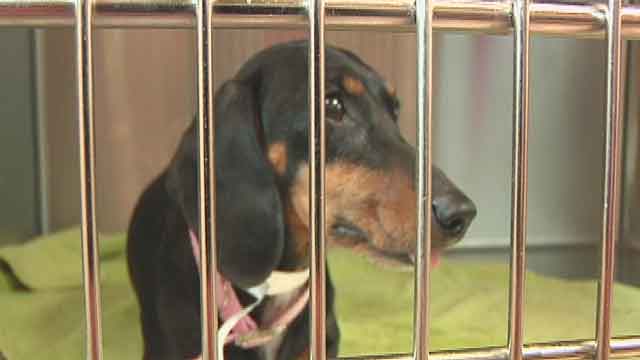Veteranarians vs. Shelters
SC veterinarians say animal shelters are abusing public funds and performing procedures they are not authorized to do.
Veterinarians in South Carolina want state lawmakers to rescue them – from animal shelters they say are taking away their business.
The shelters, which not only spay or neuter feral animals, but also provide heartworm tests and dental care, have animal doctors up in arms. They claim the issue is the standard of care, as well as the fact that the shelters are paid with taxpayer funds and donations.
“Donor-subsidized care should not mean substandard care for people who go to a humane society or shelter to adopt a pet,” said Patricia Hill, president of the South Carolina Veterinarians Association.
A bill making its way through the state Legislature would limit care animal shelters can offer to homeless animals or pets. Animal welfare advocates say the veterinarians are putting their business ahead of the pets they mend.
[pullquote]
“When we take an animal into our facility, we try to meet any needs that they have while we have them under anesthesia,” Denise Wilkinson , CEO of Pawmetto Lifeline, told FoxNews.com. “If they have a tumor, if they have an issue with their eyes, we try to take care of those issues.
“If they come to us because we have a more affordable rate, then so be it,” added Wilkinson.
With between 5 million and 7 million homeless animals nationwide, more than 5,000 shelters help provide them care and, in many cases, homes. But nearly 4 million shelter animals are euthanized each year because they are not adopted. The shelters argue that treating the health of these pets is the best way to find them a home.
The bill would require animal shelters to stop performing procedures on the animals that the vets say should be done only by vets in private practice. Hill said the bill stems from more and more complaints from vets who are seeing complications in animals due to procedures not done properly in the municipal shelters.
Wilkinson said her agency has two full-time, licensed veterinarians who perform surgeries on animals. She said getting the animals healthy increases their chances of being adopted.
“If you walk through our facility and you see an animal with a health issue that we are aware of and have chosen not to address, you might be reluctant to adopting that animal because then you would have to take it to a private clinic and pay for that medical bill,” said Wilkinson.





